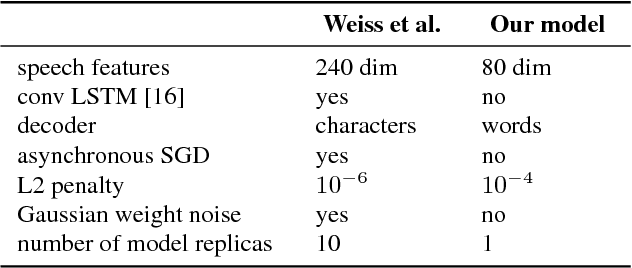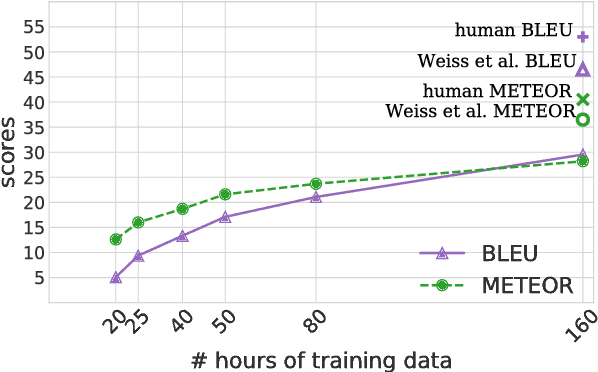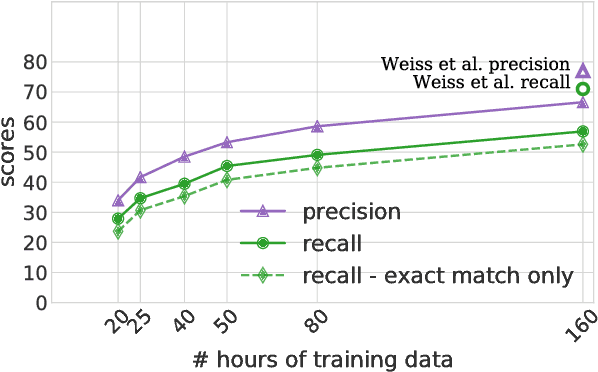Low-Resource Speech-to-Text Translation
Paper and Code
Jun 18, 2018



Speech-to-text translation has many potential applications for low-resource languages, but the typical approach of cascading speech recognition with machine translation is often impossible, since the transcripts needed to train a speech recognizer are usually not available for low-resource languages. Recent work has found that neural encoder-decoder models can learn to directly translate foreign speech in high-resource scenarios, without the need for intermediate transcription. We investigate whether this approach also works in settings where both data and computation are limited. To make the approach efficient, we make several architectural changes, including a change from character-level to word-level decoding. We find that this choice yields crucial speed improvements that allow us to train with fewer computational resources, yet still performs well on frequent words. We explore models trained on between 20 and 160 hours of data, and find that although models trained on less data have considerably lower BLEU scores, they can still predict words with relatively high precision and recall---around 50% for a model trained on 50 hours of data, versus around 60% for the full 160 hour model. Thus, they may still be useful for some low-resource scenarios.
 Add to Chrome
Add to Chrome Add to Firefox
Add to Firefox Add to Edge
Add to Edge